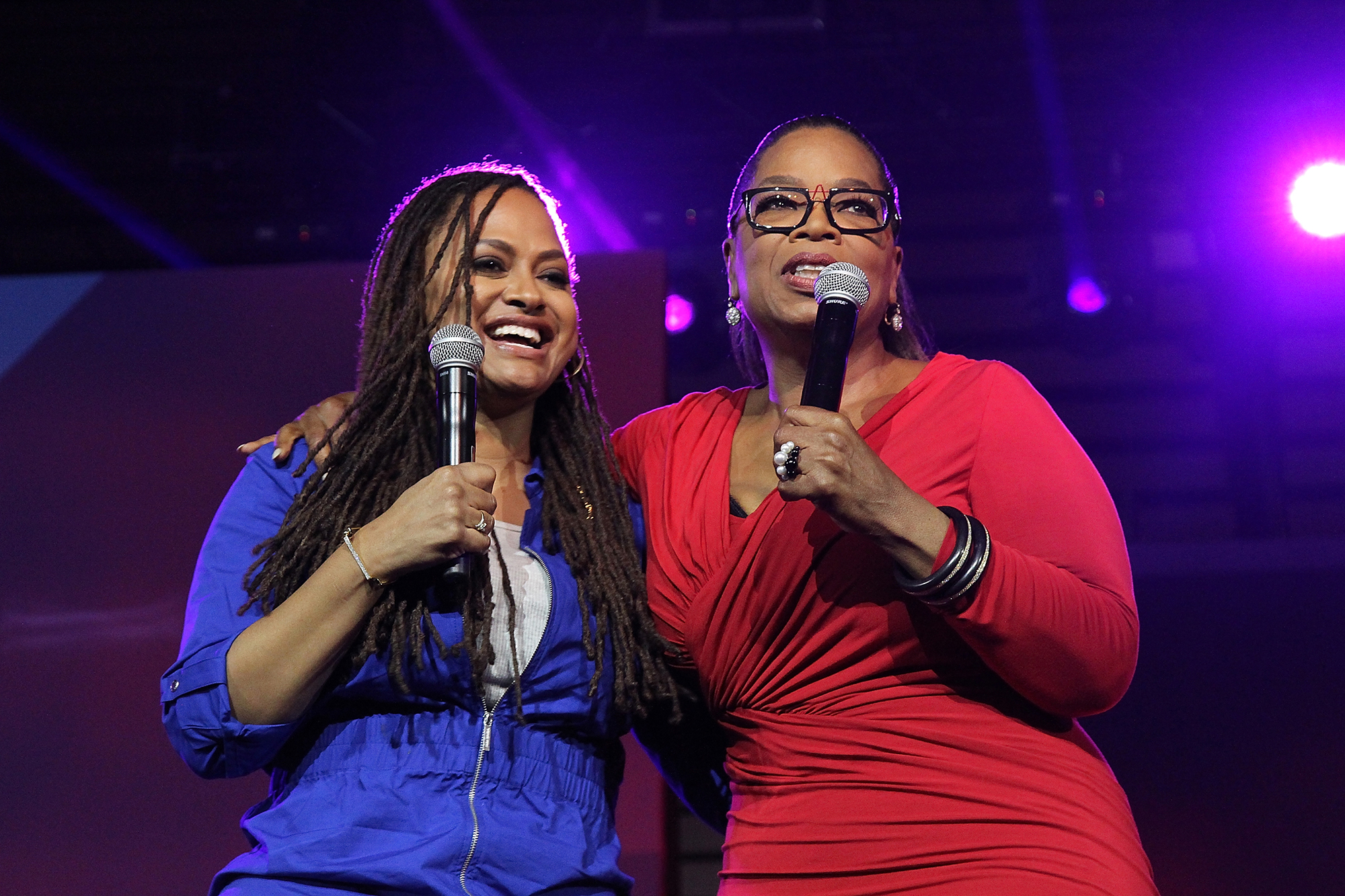
Oprah Winfrey and Ava DuVernay are undeniably trailblazers in the world of entertainment, ascending as black women in an industry dominated by white men, and they recently discussed Hollywood’s glaring diversity issues.
During a joint interview with The Hollywood Reporter about DuVernay’s upcoming TV show with Winfrey’s OWN network, Queen Sugar, both women addressed what the lack of inclusion for people of color, specifically women, means for their industry and the world at large.
“Forward-thinking people and allies of this cause within the industry have the common sense to know that this is systemic,” said DuVernay. “There needs to be more done than applauding one or two people who make it through your door.”
DuVernay also advocates for dropping the word “diversity” when talking about the lack of people of color in the industry, choosing instead to use the word, “inclusion,” a term that her friend Winfrey has also begun using in lieu of “diversity.” The distinction, DuVernay explains, is important to her because to her, it reinforces the idea of casting a token person of color to “diversify” a project and does not signify actual change.
In a 2015 New York Times column, writer Anna Holmes characterized diversity as “a box to check off” in the context of representation in the media, and quoted DuVernay’s ELLE Women in Hollywood awards speech in the service of her argument. At the ceremony, DuVernay closed her speech by criticizing the disconnect she feels with the word diversity, saying it “just feels like medicine.”
“I used to use the word ‘diversity’ all the time,” Winfrey disclosed. “‘We want more diverse stories, more diverse characters …’ Now I really eliminated it from my vocabulary because I’ve learned from her that the word that most articulates what we’re looking for is what we want to be: included. It’s to have a seat at the table where the decisions are being made.”
For DuVernay, the struggle for inclusion is integral to the freedom to create without the mission to ensure that the industry is diverse.
“I’m interested in seeing artists whom I respect who are very focused on the Black Lives Matter moment, bringing that into storytelling in a way that really amplifies the beauty and the humanity of people of color, and does it without having to wave a big sign that says, ‘This is what we’re doing.'”
More Must-Reads From TIME
- The 100 Most Influential People of 2024
- The Revolution of Yulia Navalnaya
- 6 Compliments That Land Every Time
- What's the Deal With the Bitcoin Halving?
- If You're Dating Right Now , You're Brave: Column
- The AI That Could Heal a Divided Internet
- Fallout Is a Brilliant Model for the Future of Video Game Adaptations
- Want Weekly Recs on What to Watch, Read, and More? Sign Up for Worth Your Time
Write to Cady Lang at cady.lang@timemagazine.com